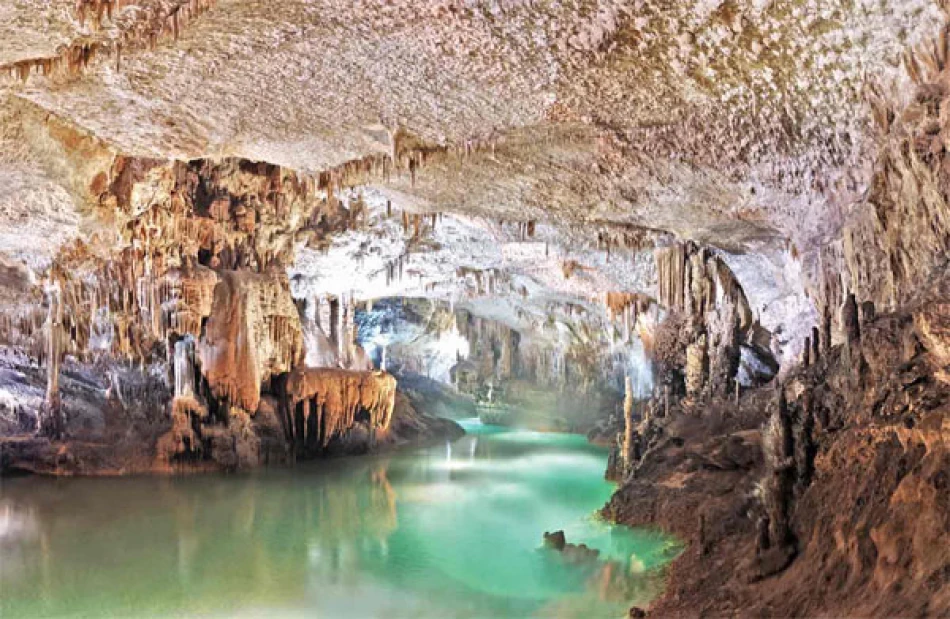
Lebanon Reopens Jā'iṭā Cave to Visitors Starting July 15th, Unlocking a Natural Wonder
Lebanon's Crown Jewel Reopens: Jeita Grotto Signals Tourism Revival Amid Economic Crisis
Lebanon's iconic Jeita Grotto will reopen to visitors on July 15, marking a significant milestone in the country's efforts to revive its battered tourism sector. The announcement by the Lebanese Ministry of Tourism and Jeita Municipality represents more than just the reopening of a natural wonder—it's a strategic move to restore confidence in Lebanon's tourism industry, which has been devastated by years of economic collapse, political instability, and the COVID-19 pandemic.
A Strategic Reopening During Peak Season
The timing of the reopening is no coincidence. July marks the beginning of Lebanon's peak summer tourism season, when Lebanese expatriates traditionally return home and regional visitors seek cooler mountain destinations. The Jeita Municipality has undertaken comprehensive maintenance work on the caves and their facilities, including the cable car system that transports visitors to the upper grotto.
The official inauguration ceremony on July 21, under the patronage of President Joseph Aoun and represented by Tourism Minister Laura Khazen Lahoud, underscores the government's commitment to positioning tourism as a cornerstone of economic recovery.
The Geological Marvel That Defines Lebanese Tourism
Located in the Nahr al-Kalb valley in Keserwan district, approximately 20 kilometers north of Beirut, Jeita Grotto consists of two interconnected limestone caves—upper and lower chambers—adorned with spectacular stalactites and stalagmites formed over millennia by calcium-rich water seepage.
Known as the "jewel of Lebanese tourism," the grotto was previously nominated to represent Lebanon in the New Seven Wonders of Nature competition, highlighting its exceptional geological significance and environmental value. The caves stretch over 9 kilometers, with the lower grotto featuring an underground river that can be explored by boat.
Tourism as Economic Lifeline
Lebanon's tourism sector, which once contributed approximately 20% to the country's GDP, has been decimated since 2019. The World Bank estimates that Lebanon's economy contracted by more than 40% between 2018 and 2023, making it one of the worst economic collapses in modern history. The reopening of Jeita Grotto represents a crucial step in rebuilding this vital economic pillar.
Unlike other regional tourism hubs such as Dubai or Jordan, which have diversified their attractions, Lebanon's tourism industry remains heavily dependent on its natural landmarks and cultural heritage sites. This makes the operational status of iconic destinations like Jeita Grotto particularly critical for the sector's recovery.
Regional Context and Recovery Challenges
The grotto's reopening comes as Middle Eastern countries are experiencing a tourism rebound following the pandemic. However, Lebanon faces unique challenges that its neighbors have largely avoided. While the UAE and Saudi Arabia have invested billions in tourism infrastructure, Lebanon struggles with basic services including electricity, water, and banking systems.
The maintenance work completed at Jeita Grotto—including the cable car system—demonstrates the technical feasibility of maintaining world-class tourist facilities despite broader infrastructure challenges. This could serve as a model for other Lebanese tourism sites seeking to attract international visitors.
Market Implications and Future Prospects
For Lebanon's tourism stakeholders, the grotto's reopening signals potential stabilization in the sector. Hotel operators, tour companies, and transportation services in the Mount Lebanon region are likely to benefit from increased visitor traffic. The site typically attracts over 600,000 visitors annually during peak operational periods.
However, the success of this reopening will largely depend on Lebanon's ability to address broader concerns about safety, currency stability, and infrastructure reliability. International tour operators and travel insurance companies continue to monitor Lebanon's security situation closely, which directly impacts visitor confidence.
The emphasis on the grotto as a "national treasure" in official communications suggests the government recognizes tourism's role not just in economic recovery, but in rebuilding Lebanon's international image. Success at Jeita could pave the way for renewed investment in other major attractions, potentially accelerating the sector's broader recovery.
Most Viewed News

 Sara Khaled
Sara Khaled






